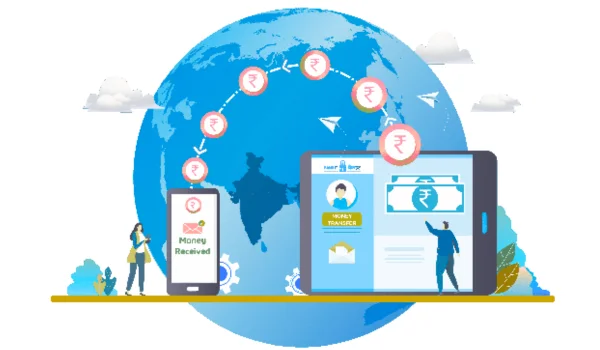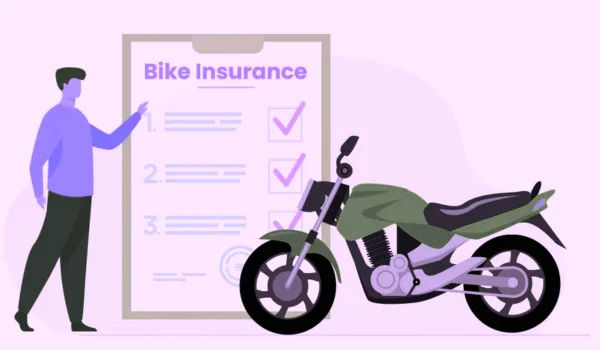When I first decided to get serious about protecting my family’s future and financial wellbeing, I realised something crucial — the person I speak with matters just as much as the policy I buy. In India’s evolving insurance landscape, there are different kinds of professionals who call themselves “agents” (or intermediaries) and each type plays a distinct role. Understanding these can help you pick the right person to guide you, and avoid confusion or mis-selling down the line.
In this article I’ll walk you through the major types of insurance agents/intermediaries in India, explain what each one does, and highlight how to choose the right kind of “agent” for your needs. By the end you’ll feel more confident to ask the right questions and engage with an insurance professional knowingly.
What is an Insurance Agent / Intermediary?

In simple terms, an insurance agent or intermediary is someone authorised by the Insurance Regulatory and Development Authority of India (IRDAI) to help you find, buy, or service insurance policies. They act as a bridge between you (the policy-buyer) and the insurance company. The IRDAI regulates different categories of such intermediaries so the public is protected.
Just like when you buy a home and want someone you trust to explain things, when you buy insurance you need someone who understands the products, helps you choose wisely (not just sell), and remains available after you buy the policy. Let’s now look at the main types you will encounter in India.
Major Types of Insurance Agents/ Intermediaries in India
Here are the common types distinguished by their roles, who they represent, and what they can do for you.
Individual Agents
These are individuals (people) licensed to sell insurance policies.
- Under the IRDAI rules an “Individual Agent” must obtain registration to solicit and procure insurance business for life insurers or non-life/health insurers.
- These agents usually represent one or more insurance companies (depending on the arrangement) and deal directly with customers (you) in local markets, towns, cities.
- They help you pick from the company’s portfolio of products, assist in completing forms, submitting proposals, follow up after sale, and in some cases help with claims.
When this type is useful for you: If you prefer a personal relationship, local face-to-face contact (especially in semi-urban/rural areas), and want someone who understands your neighbourhood.
Tip: Check which insurer(s) the agent represents, whether the agent is authorised for life, general, health or all streams; ask about ongoing service after the sale.
Corporate Agents
These are companies, banks, non-bank financial firms, micro-finance organisations, or other corporate entities authorised to sell insurance on behalf of insurers.
- IRDAI’s “Registration of Corporate Agents Regulations, 2015” defines categories like Corporate Agent (Life), Corporate Agent (General), Corporate Agent (Health) and Composite (covering two or all streams).
- For example, banks in their branch network may act as corporate agents for one or more insurers (“bancassurance” model).
- A corporate agent might have tie-ups with multiple insurers (within regulatory limits) which means more product choice.
When this type is useful: If you already have an existing financial‐relationship with a bank or NBFC and want an insurance solution integrated into your banking relationship; or if you prefer one-stop service (bank + insurance).
Tip: Even though you are dealing with a corporate entity, always check which specific insurer the product is from, what the agent / company’s role is, and what service you will receive post-sale (claims, renewals etc).
Captive Agents (or Company-Appointed Agents)
While not always separately regulated as a unique category in IRDAI’s naming, in practice many insurers appoint agents who work exclusively (or dominantly) for that one company. These agents are often called “tied” or “captive” agents.
- Their strength: deep knowledge of that one insurer’s products, good support network, usually strong training.
- Their limitation: they may not compare competing companies’ products for you, so you may get fewer alternative options.
When this type is useful: If you already trust a particular insurer’s brand and want to stick with that company, and you value continuity with that company’s network.
Tip: Ask: “Are you only offering products of this company, or can you offer others as well?” That gives you clarity on whether you are getting comparison or single-company options.
Independent Agents / Insurance Marketing Firms / Multi-Company Agents
Again, while IRDAI frames many intermediaries under “agents” or “corporate agents”, in common parlance you’ll find independent agents or marketing firms who represent multiple insurers (though within regulatory confines).
- These agents can provide you a choice of products across insurers, thus focusing more on your needs (rather than a single company).
- They may charge no extra fee (since the insurer pays commissions), but you still must check their service credibility.
When this type is useful: If you want to compare across many insurers, want best-fit product rather than just one company’s product.
Tip: Make sure the agent discloses which insurers they work with, whether they are authorised for life/health/general, and how post-sale service will work (renewals, claims).
Digital Agents / Aggregators / Online Platforms
In recent years, the growth of online distribution means you’ll often meet digital “agents” or platforms. These may be web/mobile apps, or digital teams of agents who handle insurance sales, support and renewal online or via call.
- While strictly speaking the “agent” may still be regulated, the mode is digital and convenience-oriented. For example, a platform may help you compare health or motor insurance, then you complete purchase online with an authorised intermediary.
- These are very useful for tech-savvy consumers, quick quotes, and minor insurance purchases (such as motor, two-wheeler, health).
When this type is useful: If you are comfortable doing things online, want convenience, want to compare several offers quickly, and prefer less face-to-face involvement.
Tip: Even online, verify the intermediary is licensed, inspect fine print (renewals, claims), and ensure you have proper service channels (chat/phone) when you need help.
How to Choose the Right Agent Type for You
From my years of speaking with clients and friends (especially those in Delhi and other Indian cities), here are practical criteria to help you pick the right agent type:
- Your Need & Complexity:
- If you only need a simple motor/home/health policy: digital or individual agent may suffice.
- If you have multiple products (life + health + property + business risks): an independent agent or corporate agent with wide access may be better.
- Product Range vs Depth:
- Captive Agent: deep on one company’s product.
- Independent Agent / Corporate Agent: broader range across companies.
- If you want comparison, ensure the agent is not constrained to one insurer.
- After-Sale Service & Claims Support:
- Good agents provide service beyond sale: assist in renewals, claim follow-up.
- Ask: “What happens at claim time? Are you available? Which insurer do you service for?”
- Credentials & Licencing:
- Verify agent’s IRDAI registration/licence. For corporate agents check registration under IRDAI’s regulations.
- Ideally ask for agent’s ID, licence number, company they represent, scope (life or general).
- Convenience & Relationship:
- If you prefer face-to-face: pick local individual or corporate agent.
- If you prefer convenience and speed: digital aggregator or online agent.
- Transparency & Open Advice:
- The agent should clearly explain product features, exclusions, renewal process, commissions.
- Avoid those who push only one policy as “the best for you” without discussion of your needs.
A Few Personal Tips & Things to Watch Out
- Don’t assume all agents are equal: Just because someone calls themselves an “insurance agent” doesn’t mean they have full licence or broad access.
- Ask about exclusivity: If the agent only offers one insurer’s policies, you are getting less choice.
- Check scope of licence: Some agents may have life insurance licence only, or general/health only. Your need may span multiple streams.
- Service is important: After you buy, the agent should continue to assist (renewals, claims). Otherwise you may be left on your own.
- Understand compensation: Agents earn commissions; good service matters more than just low premium.
- Be wary of mis-selling: Transparent explanation of what is covered, what is excluded, renewal cost, surrender terms— a good agent will ensure you understand.
Conclusion
In my view, the right insurance adviser can be almost as valuable as the policy itself. Whether you opt for an individual agent you can visit in your neighbourhood, a corporate agent linked to your bank, an independent agent with company-agnostic choices, or a digital platform for convenience—the key is to match your need, comfort and trust level.
Understanding the types of insurance agents in India empowers you to ask smarter questions: “Which companies do you work with?”, “Are you independent or tied to one insurer?”, “Will you help me with claims after purchase?” With that clarity, you’re not just buying an insurance policy—you’re building a relationship that protects your goals and your family.





